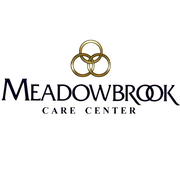
Advance directives are legal forms that tell medical providers your wishes about your health and treatment plans. While they can be created at any age, they're especially important parts of senior care. Whether you’re helping an elder loved one or are making your own plans, here’s a helpful look at the benefits of these documents.
A Guide to Advance Directives & Senior Care
How Advance Directives & Living Wills Differ
Advance directives are generally intended to go into effect if the principal is unwell and unable to knowingly consent to treatments. Advance directives can cover a variety of circumstances, including a diagnosis of mental illness. Living wills are a subcategory of advance directive specifically for people who are terminally sick and want to provide instructions regarding life-sustaining medical care. Written instructions of both types ensure that your wishes are respected even if you can’t directly communicate them. They also provide clarity, minimizing the likelihood of family disputes about what action to take.
What Advance Directives Include
 The forms can be as specific or as general as you wish. You can draft a medical power of attorney form to designate a health care proxy — a trusted person who will represent your interests and make decisions on your behalf if you’re incapacitated. You could also delineate specific procedures to avoid, or detail what should be done if certain conditions or factors are present. Do not resuscitate orders (DNRs) and organ donation requests are also commonly included.
The forms can be as specific or as general as you wish. You can draft a medical power of attorney form to designate a health care proxy — a trusted person who will represent your interests and make decisions on your behalf if you’re incapacitated. You could also delineate specific procedures to avoid, or detail what should be done if certain conditions or factors are present. Do not resuscitate orders (DNRs) and organ donation requests are also commonly included.
How They Work
You can complete a state-recognized form that’s available online, although medical professionals will also typically honor those designed to be accepted in many states, or that were prepared in another state. You’ll need to have the forms notarized, or signed by two witnesses. These observers can’t be your doctor, family members, or any person you’re naming as a proxy in the documents. Although not legally required, you may want to consult with an attorney. Distribute copies of the form to your loved ones, senior care providers, and hospital staff. You may also want to keep a notecard with you indicating that you have an advance directive just in case.
Although advance directives are a somber topic, these critical documents help you and your family prepare for every contingency. For all senior care concerns, turn to Meadowbrook Care Center in Cincinnati, OH. They offer long- and short-term programs for Hamilton County residents, including hospice, palliative, and Alzheimer’s or dementia care. For almost 40 years, they’ve provided personalized, attentive service to residents of all need levels. They’re dedicated to arming seniors with the resources they need to enjoy peace of mind about their medical future. Call (513) 489-2444 with questions or learn more online.
About the Business
Have a question? Ask the experts!
Send your question

